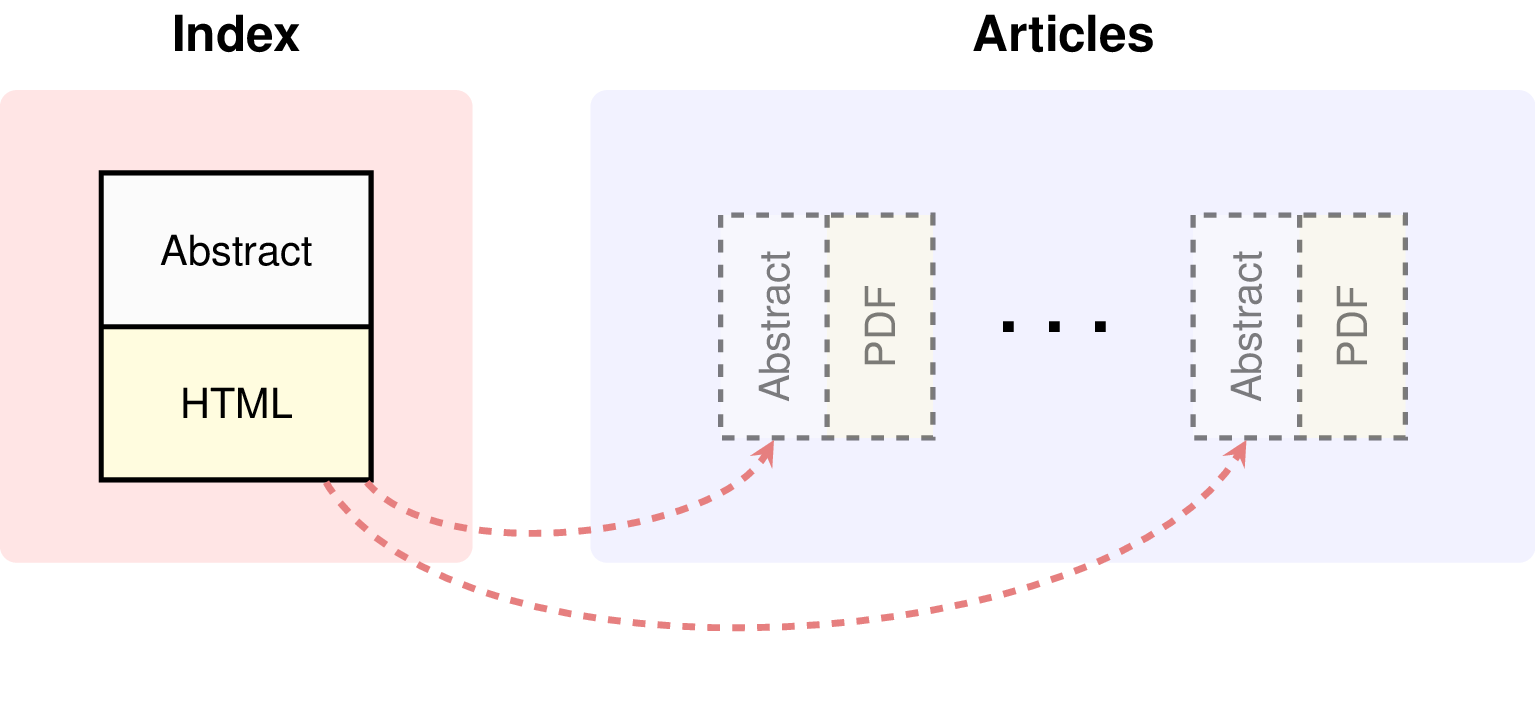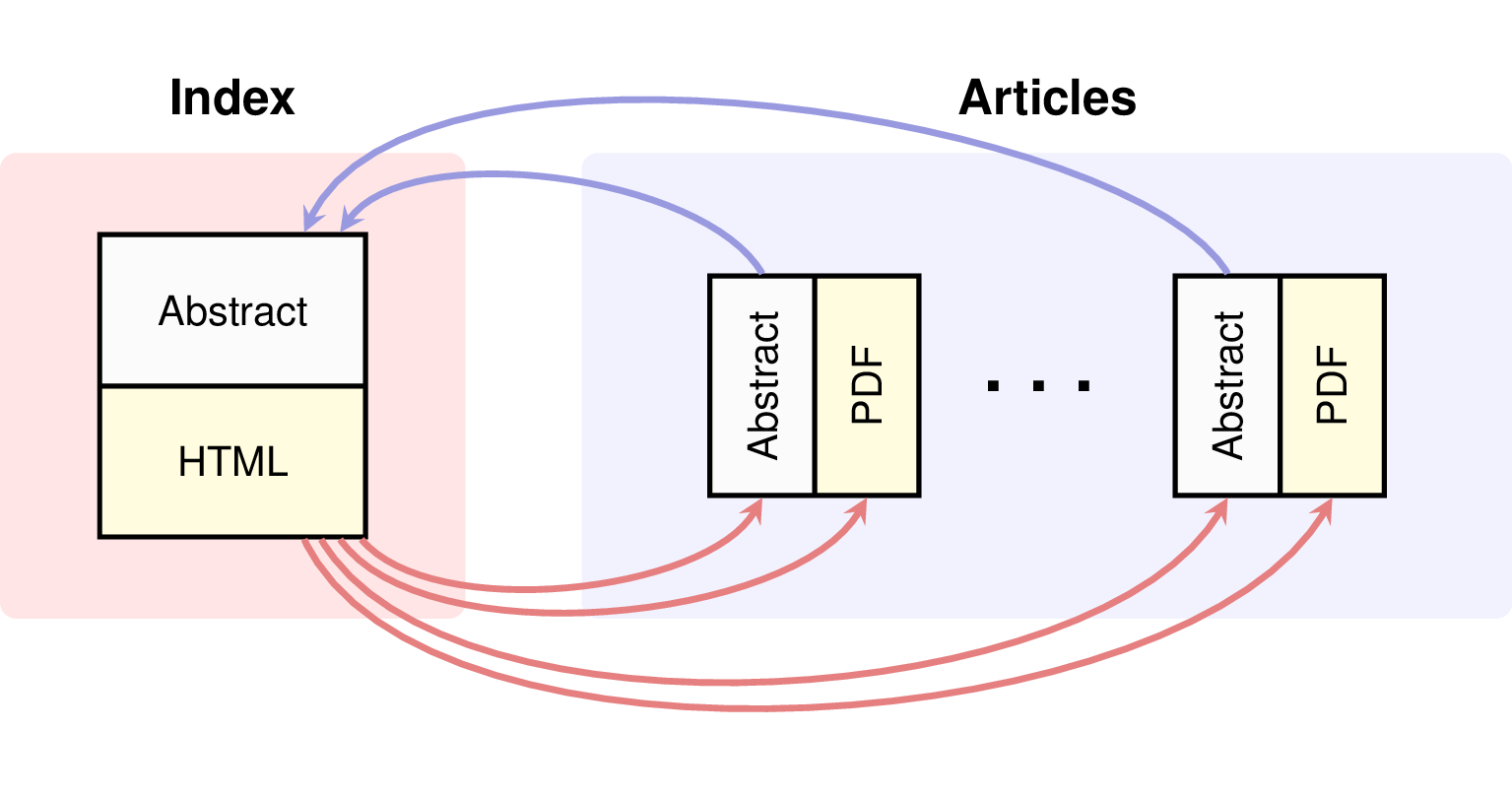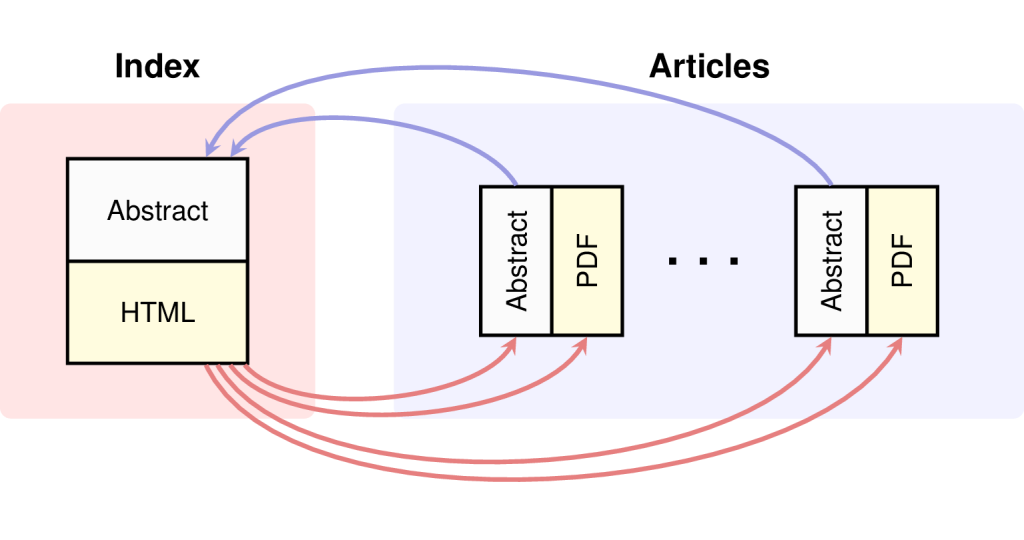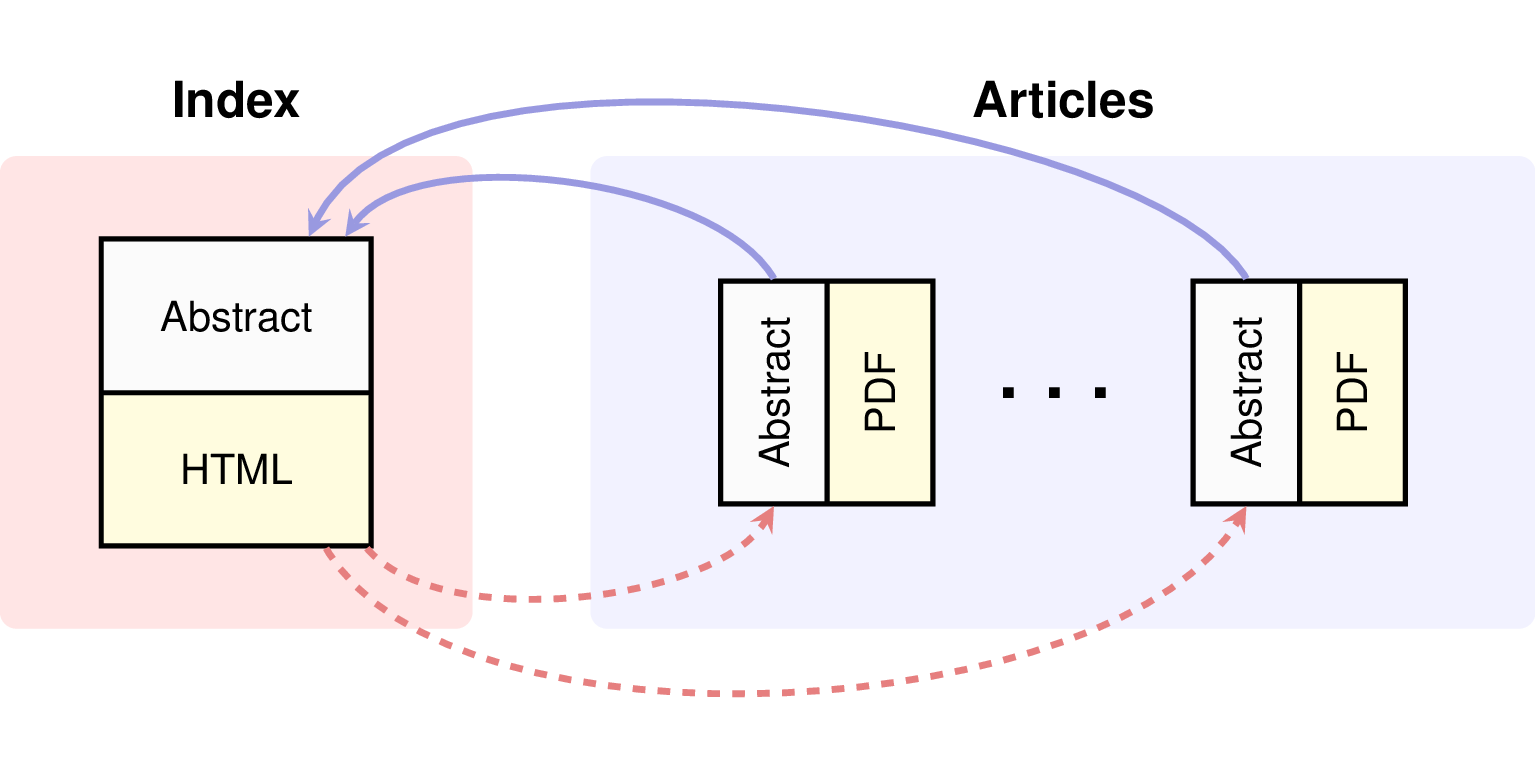In 2010, 2016, and 2019, I was responsible for publishing the proceedings of the Scandinavian Symposium on Physical Acoustics. SSPA is a small conference organised every year at Geilo, Norway. It typically has around 50 participants. Most come from Norway, but many also come from other European countries. After the symposium, participants who held a presentation are encouraged to submit articles to the symposium’s proceedings. Typically, these proceedings end up with 5–10 articles.
In 2016 and 2019, I chose to publish the proceedings through the repository arXiv.org. This can be a very good approach, because many researchers know and follow arXiv. In addition, academic search engines such as Google Scholar indexes arXiv’s articles. However, there is not that much information available on how to use arXiv to publish proceedings. arXiv does encourage using its repository for conference proceedings and has some relevant help pages available. Unfortunately, these pages pooled together do not give you a clear procedure or tell you all that you should know. Therefore, I will show you the overall procedure that I have followed twice, and discuss some possible pitfalls of publishing proceedings through arXiv.
The overall procedure of publishing proceedings through arXiv
This is the general procedure that I followed in 2016 and 2019. I established it together with some very helpful arXiv administrators. This will give you a HTML proceedings index on arXiv (like this one or that one) that links to the individual articles. The articles themselves are uploaded as regular arXiv submissions whose abstract pages link back to the index abstract page. (See e.g. this or that article for an example.) The figure to the right shows how this looks. Achieving the two-way link between the index and the articles, though, is a kind of chicken-and-egg situation as you cannot upload everything at once. This unfortunately makes the procedure a bit more complex.
Step 0: Getting permission from arXiv
First of all, you need permission from them to upload your proceedings at all. Send them an email asking whether they will allow you to publish your conference proceedings via arXiv using a procedure like the one described here. If they agree that your conference is a good fit for arXiv, they will let you go ahead. If they have not already granted it, you will also need to ask for third-party permission in order to submit articles to arXiv on behalf of the authors.
Step 1: Get the contributions
Have the authors submit their contributions to you and specify their article’s main category (and optionally subcategories). arXiv has a long list of categories to choose from, so you may want to help the authors with a shortlist.
If you provide a LaTeX article template, you need to ask the authors using it to send you all files necessary to compile the document. If you try to upload a PDF file generated with LaTeX, arXiv will reject it as they regard TeX source as a better archival format than PDF. Instead, you have to upload the source files and let their TeX engine compile it for you. (For that reason, you also need to make sure ahead of time that your conference proceedings’ LaTeX template is compatible with their TeX engine!)
If you provide a Word template, the authors using it should submit their articles to you in PDF format. ArXiv will not accept Word files, as PDF is a better archival format. (This is quite reasonable, as Word documents may look different when read by free software, or even by different versions of Word.)
Step 2: Start the process of submitting the proceedings articles
For this step, you’ll need to have arXiv grant you permission to upload articles as a third party. When they have granted it, you can start a third-party submission for all of the proceedings articles to check that you can submit all of them without issues. However, don’t submit anything yet!
This step lets you find and fix any problems with the articles ahead of time. Some might be larger than arXiv allows, in which case the author must typically reduce the size of their figures. (arXiv specifies that a submission may be no larger than 10 MB, and no single file larger than 6 MB.) Or an article might use a LaTeX package that arXiv does not support, which means that you or the author must find a workaround.
Step 3: Make and submit the first version of the proceedings index

Now you know that you can upload the individual articles with no technical problems. It is then time to write the proceedings index, which gives some information about the conference and links to the proceedings articles. You should write the index as simple HTML, including some images in e.g. PNG and/or JPG as necessary. Once you are happy with the index and have checked it thoroughly for mistakes, you simply upload the index as a normal arXiv submission. The submission should contain the HTML file and all the image files that it uses.
At this point, the articles are not yet published. You can therefore not link directly to them from the index. However, there is a trick to get around this, where you assign a report number to each article. You can then refer to the report numbers in the index as described here. Each report number in the index will then link you to a report number search that will lead to the corresponding article when arXiv has published it. You can see this in practice in the first uploaded version of SSPA’s 2019 proceedings.
This is a somewhat awkward method to refer to the articles, which is why we will upload a new and improved version of the index in Step 5. However, it is still a good idea to use the report number trick, as the first version of the index will remain available even after you publish the second version. In case somebody stumbles across it later, it should link properly to the articles.
Step 4: Submit the proceedings articles
When arXiv publishes the proceedings index, it will assign to it an arXiv ID, which is an unique identifier. You can refer to this arXiv ID in the comment field of each proceedings article. When the article is published, the index’s ID in the comment field will become a link to the index. For example, I added “part of the Proceedings of the 42nd Scandinavian Symposium on Physical Acoustics (arXiv:1904.12488)” to the comment field of each article, which looks like this on an article’s abstract page.
After you have added this to the comment field (and optionally provided a report number) to each article as discussed in Step 3, you can submit your articles. Note that arXiv may put some of the articles on hold for their moderators to look at. In most cases, they will simply approve the article. They may also assign the article to a more appropriate arXiv category. If it does not comply with arXiv policies, they might even reject it. If an article is on hold for longer than is reasonable, say, two weeks, it can help to contact arXiv moderation and politely ask them to make a decision.
Step 5: Make and submit the second version of the proceedings index

Now that all the proceedings articles are published, you may want to make a new and improved version of the index that links more directly to each article. You can simply rewrite the first version of your index with links to each article’s abstract page and full-text PDF. When you are done and have checked everything, you can submit the new version to replace the first version.
After this version is out, you have a proceedings index that refers to the articles, which themselves refer to back to the index. All done!
Pitfalls
While the procedure itself is relatively straightforward, a few things can go wrong. I want to tell you about the mistakes I have made to make sure you avoid them.
Check your templates!
You need to make sure that your conference’s templates comply with arXiv’s procedures. In particular, your LaTeX template cannot use packages, classes, or engines that arXiv’s typesetting engine does not support. For that reason, you need to test whether you can successfully upload your template as an arXiv submission before handing it out to the conference participants.
(In the SSPA 2016 proceedings , I wrote a LaTeX template that required the XeLaTeX or LuaLaTeX typesetting engine. The reason was to get better font compatibility with the Word template. However, arXiv’s typesetting engine does not support these engines. Still, an arXiv admin kindly gave me special permission to publish the resulting articles as PDF, which they normally do not allow.)
Ensure that all articles follow arXiv policies!
ArXiv specifies some policies on what articles they do not allow. Most of the policies are straightforward; e.g., don’t plagiarise others or yourself, and don’t post fictitious or inflammatory content. However, some policies may trip you up. In particular, “arXiv only accepts submissions in the form of an article that would be refereeable by a conventional publication venue”. This means that some types of proceedings submissions would not be acceptable to arXiv. For example, they would not accept extended abstracts or working papers that may present a research setup and briefly describe preliminary results.
(In SSPA’s case, we do accept and even encourage such working papers. In 2019, however, arXiv moderators rejected one of our proceedings article submissions, as they judged it not to be “in a format appropriate for publication in a conventional journal”. This is of course their prerogative.)
You may have one or more of the articles rejected
When you are publishing conference proceedings through arXiv, their moderators still have the final say in what you can publish. If they believe that an article does not comply with arXiv’s policies, they may reject it. You may therefore end up with an incomplete proceedings on arXiv.
(In our case, we decided to publish the working paper in question through ResearchGate. Their polices are less strict than those of arXiv. The final proceedings index then links to ResearchGate instead of arXiv for one article.)
Moderation might take time
Occasionally, arXiv will select your submissions for moderation by their volunteer moderator team. While waiting for moderation, the submission will be “on hold”. Sometimes, submissions can get stuck in this state for weeks. I am not quite sure why this happens; perhaps the assigned moderator is unavailable and does not let arXiv know? Whatever the reason, I did manage to get two submissions unstuck by sending a polite email to arXiv asking for a decision. Regardless, you should take the uncertain timeframe of moderation into account when planning the publication schedule for your proceedings.
Summary
Publishing conference proceedings on arXiv can be a very good choice. It gives quite a lot of visibility for your proceedings compared to the amount of effort required. Their administrators are also usually quite helpful when you need them. However, there are some pitfalls that you need to be aware of. In particular, you need to make sure that your conference’s proceedings submissions will comply with arXiv’s policies.
In our case, the Scandinavian Symposium on Physical Acoustics currently accepts submissions of a more preliminary nature than what arXiv does. This policy has a long tradition and has worked well for us so far. However, it also means that we accept submissions that arXiv may not. This means that we will probably have to look elsewhere in the future, which is unfortunate as arXiv is a great fit for us in every other regard. If you have any suggestions for where else we could go, please let me know!




Pingback: The Proceedings of the 43rd Scandinavian Symposium on Physical Acoustics are out! | Erlend M. Viggen